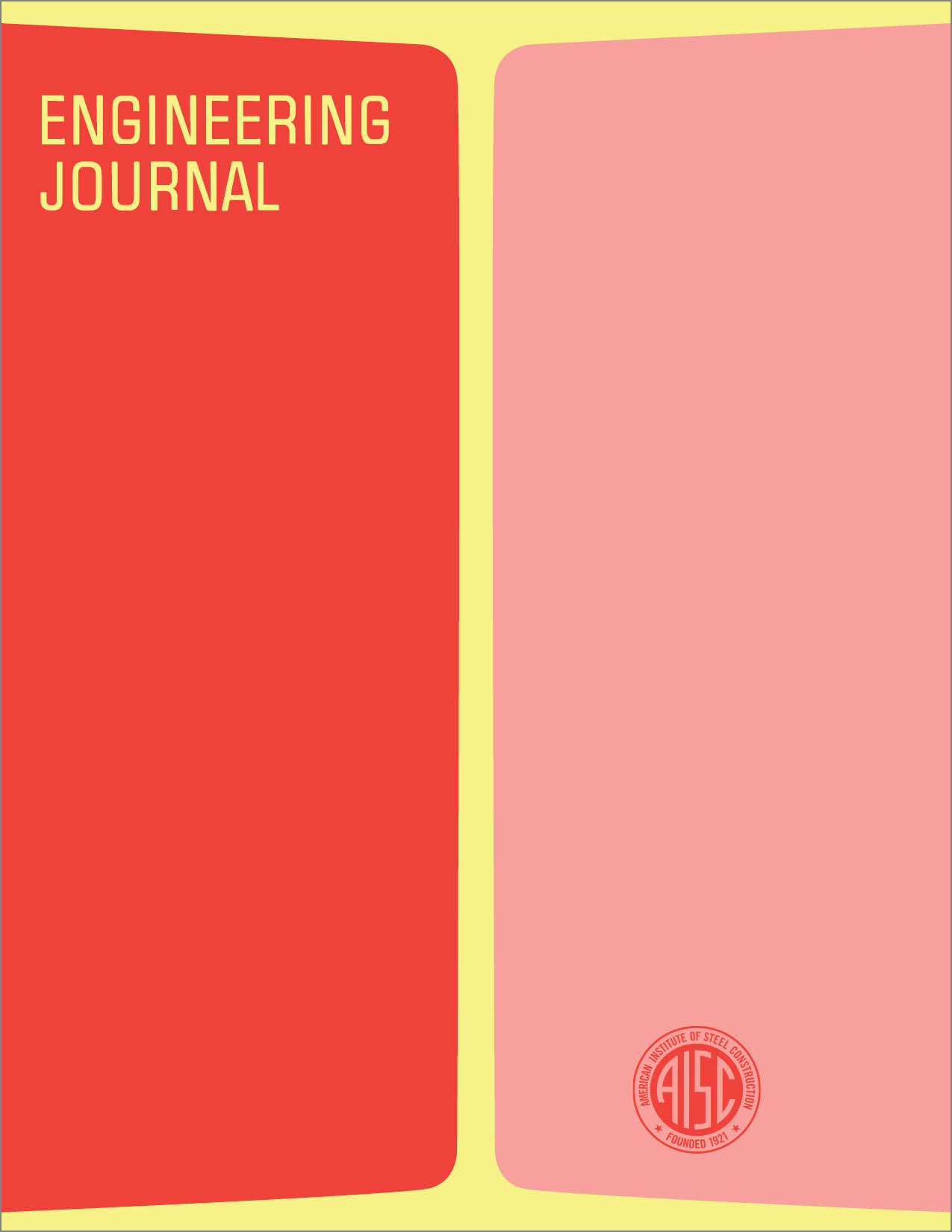Rapid Selection of Beam-Columns for Wind or Earthquake Effects
DOI:
https://doi.org/10.62913/engj.v13i4.277Abstract
Many floor beams, particularly those along column lines, are subjected to axial forces due to wind or earthquake effects together with bending due to floor loads. The use of the AISC formulas for this case is somewhat involved and time-consuming. The bending stress depends upon resistance of the compression flange to lateral buckling over unsupported lengths, whereas the allowable axial stress is governed by the slenderness ratios. The Kl/r values also depend upon locations of restraint points. Further, all allowable unit stresses are increased by one-third. One of the difficulties is that both slenderness ratios need to be taken into account simultaneously. The charts in this paper presented will expedite economical selections, since the curves cover the essential investigations of AISC Specification Sect. 1.6—Combined Stresses, when bending occurs only about the x-axis. Any member stressed to its full moment-carrying capacity will also have an additional axial load capacity which should be utilized. This is the additional strength fa which is given by the charts.

